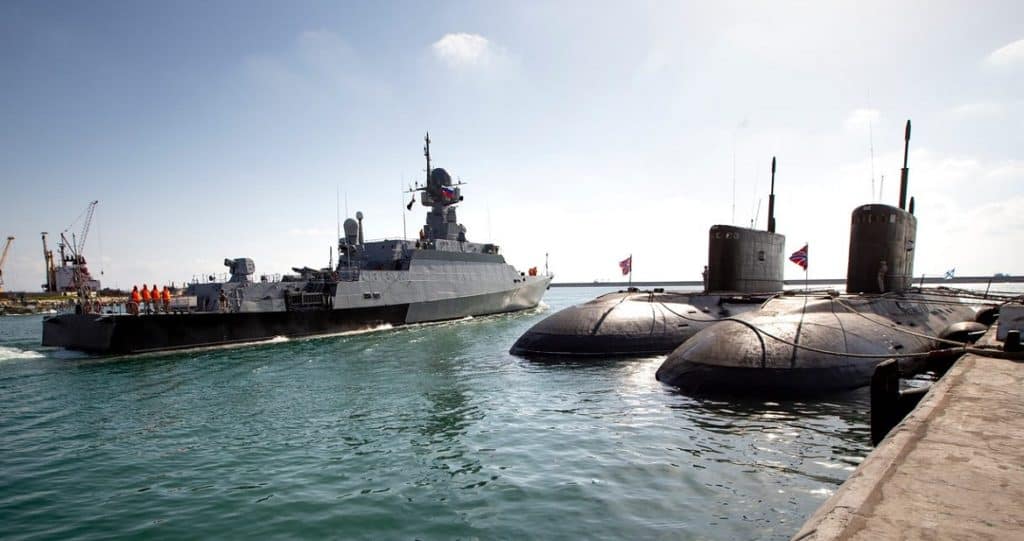By Denis Korkodinov
Russia’s maximum program in the Middle East region includes the fight against international terrorism, the establishment of control over oil fields, as well as counteraction to the countries of the North Atlantic Alliance. In addition, Moscow is interested in ensuring the safety of strategic oil and natural gas routes mainly in the Strait of Hormuz, as well as in the Strait of Bab al-Mandeb. Overall, Russian efforts boil down to restoring stability in the Middle East and trying to minimize geopolitical risks.
It is also worth noting that the strategic goal of Russian politics, among other things, is to consolidate its influence in the Eastern Mediterranean. This explains why it is extremely important for Moscow to maintain military bases in Syria (Tartus and Khmeimim).
The creation of a naval base in Tartus began in 1983 on the basis of a friendship treaty concluded between the USSR and Damascus. Moscow felt a great need to strengthen its position in the Middle East region, especially after Egyptian President Anwar Sadat actually boycotted military cooperation with the Soviet Union in the 1970s and thereby deprived him of access to major maritime trade routes. In the process of the Syrian conflict that began in 2011, Russia significantly strengthened its presence in Tartus and Hmeimim, which turned into the main Russian outpost in the Middle East.
In this regard, Syria is of geopolitical importance for Moscow, since the Russian strategy related to access to the Eastern Mediterranean directly depends on the well-being of this country.
In addition, Russia is interested in expanding the market and maintaining friendly relations with Middle East countries specializing in the export of oil, natural gas, agricultural raw materials, and weapons. This strategic direction became especially relevant during the first Arab-Israeli war of 1947-1949 and reached its highest peak after the beginning of the “Arab Spring”.
A sharp drop in world oil prices in 2014 led to the formation of a conviction in Moscow that it needed to support countries – the main exporters of “black gold”, on which, inter alia, the stability of the domestic Russian market. In this regard, good relations have been established with Saudi Arabia, the United Arab Emirates, Qatar, Iraq, Iran and Libya. Creating a stable alliance with these countries allowed Russia to minimize its costs associated with oil supplies.
An equally important area of Russian strategy in the Middle East continues to be opposition to the expansion of the influence of the North Atlantic Alliance. The main competitor of Russia in the region are the USA and Turkey. And if the role of Ankara in the near future was neutralized due to personal agreements between Vladimir Putin and Recep Erdogan, then limiting Washington’s destabilizing influence is a difficult task for Moscow.
However, this does not indicate that Moscow does not seek to change the balance of power in the region in its favor. At least, it has strengthened its position quite strongly in countries traditionally in the sphere of American interests: Syria, Libya, Lebanon, Iraq, Iran.
In turn, Russia has for a long period of time been under pressure from the Islamic groups operating in the Middle East, which pose a real threat to its national security. For this reason, Moscow considers itself entitled to launch preemptive strikes against terrorist organizations. At the same time, Russian efforts to combat international terrorism are directly related to ensuring security in the countries of the region. In other words, the smaller the influence of terrorist organizations, the safer the Middle East. And Russia is actively working on this task.
(The views expressed in this article belong only to the author and do not necessarily reflect the views of World Geostrategic Insights).







